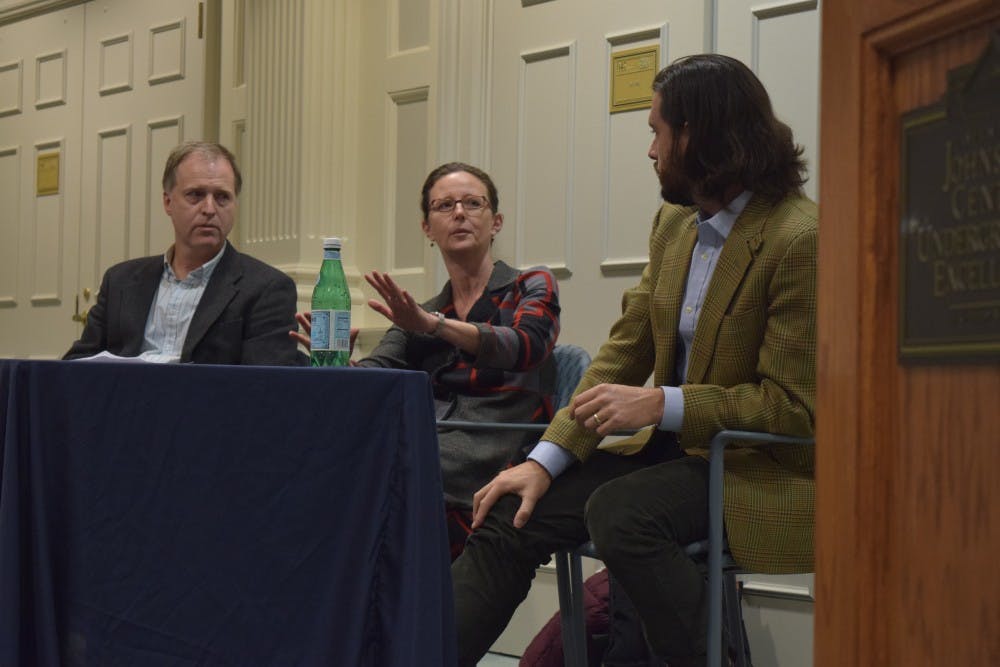The panelists at Thursday's "Moral Obligations of Returning Veterans," hosted by the Carolina Forum, agree that people need to educate themselves on the American military and its current involvements.
Veterans who are returning home after deployment face the struggle of reintegrating into society; it does not make their transition easier when their community does not understand what to do with them, said Hilary Lithgow, an English professor.
“The one thing that we truly owe veterans is to fulfill our promises to them when they signed up,” said Wayne Lee, a professor of history who entered the Army in 1987. “That is the most important thing.”
ROTC student John Shea said especially considering the circumstances, veterans should receive help.
“With more research of the effects of PTSD on the human brain, I think we owe our veterans that are experiencing combat related injuries, both physical and mental, the best treatment and the best resources available,” Shea said. "If someone is willing to put 200 pounds on their back and walk and deploy to the desert and get shot at for months at a time, as a society, we owe them a debt of gratitude, but more than that, we owe them legitimate support.”
Lithgow said citizens have a responsibility to rid themselves of ignorance and obliviousness as it pertains to current and past soldiers. She said people need to be more aware of what the military is doing overseas.
“I do think we owe an understanding of what America is up to in the world, and the fact that we have been at war for 18 years, and understanding where Iraq and Afghanistan are and that they’re different places,” Lithgow said. “I mean, the degree of not just ignorance but the total obliviousness, that we are at war and that people are serving now.”
The lack of understanding can follow a soldier home and into the job market. Time spent in the military affects job prospects at home in multiple ways.
“One of the tick boxes is, ‘What kind of discharge did you get? Did you get a general discharge? An honorable discharge? Some form of bad conduct discharge? Other than honorable discharge?'" Lee said. "When that tick box gets attached to your name, it has long term downstream consequences. All the other organizations that would potentially hire a veteran look at their tick boxes. A lot of the negative discharge labels that were given could be associated with wounds. Psychological and physical wounds. The army is a bureaucracy and very large, so it doesn’t necessarily account for that.”




